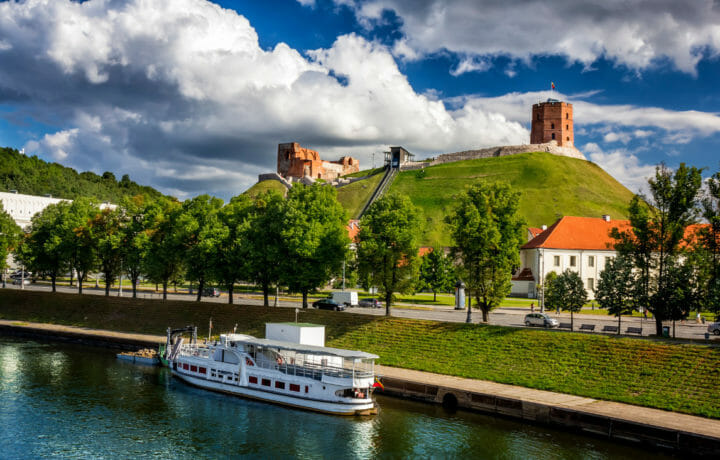Lithuanian authorities stated the transit of goods through their territory to the Russian exclave of Kaliningrad are subject to European Union (EU) sanctions. Lithuania stated that it was implementing EU sanctions, banning the transit of goods, as part of a number of measures intended to punish Russian President Vladimir Putin for the invasion of Ukraine. “It’s not Lithuania doing anything, it’s European sanctions that started working from June 17,” Lithuanian Foreign Minister Gabrielius Landsbergis said. The items sanctioned by the EU, consists of coal, metals, construction materials, and advanced technology.
What is an Exclave and Where is Kaliningrad?
Kaliningrad is a highly militarized Russian exclave, as it shares no borders with mainland Russia. It is Russia’s westernmost region, or oblast having a strip of Baltic Sea coast on its west, Poland to the south, and Lithuania to the north and east. It is roughly 5,800 square miles or slightly larger than Connecticut, with a population of about one million. Half the population lives in the capital city of Kaliningrad.
Kaliningrad was part of Prussian Germany (Königsberg) until the end of the World War II, when it was given to the Soviet Union at the Potsdam Conference in 1945. Königsberg was founded in 1255 on the site of the ancient Prussian settlement. Kaliningrad with its geographic location and importance to Russia, is considered by the west to be a military base. The exact number of military personnel in Kaliningrad is unknown with estimates ranging up to 200,000.
Russia’s Position
Predictably, Russia has threatened to retaliate over Lithuania’s ban on the transit of EU-sanctioned goods across its territory to Kaliningrad. “If cargo transit between the Kaliningrad region and the rest of the Russian Federation via Lithuania is not fully restored in the near future, then Russia reserves the right to take actions to protect its national interests,” the ministry said. Russia’s foreign ministry summoned Lithuania’s top diplomat in Moscow to “strongly” protest and threaten unspecified “retaliation” over the blockade of shipments. The ministry considers the blockade to be an “openly hostile” move with Kremlin spokesperson Dmitry Peskov stating the situation was “more than serious.”
Lithuania’s POV
Lithuania is the only country within the EU, where the transit of Russian goods takes place regularly, from mainland Russia to Kaliningrad. Lithuania could have sought exemptions – like other EU countries sought exemptions from the various elements of Russian sanctions. Some say Lithuania made a decision not to seek exemptions from the sanctions. Others say this is becoming a humanitarian issue.
After Russian tongue-lashing of Lithuanian diplomats in Moscow last week, Lithuanian President Gitanas Nauseda stated, “Lithuania must maintain and will maintain control of goods transported through its territory and there can be no talk of any ‘corridors’ as well as any thoughts of degrading in response to Kremlin’s threats.”
Kaliningrad’s Reaction
Anton Alikhanov, governor of Kaliningrad Oblast since September 29, 2017, said the ban would cover around 50% of the items that Kaliningrad imports. Governor Alikhanov has urged Kaliningrad citizens not to resort to panic buying. He stated earlier in the week that two vessels were already ferrying goods between Saint Petersburg and Kaliningrad, and that seven more vessels would be doing so by the end of the year.
Why does it Matter to Us?
Lithuania joined the NATO military alliance in 2002 along with the former Soviet nations of Estonia and Latvia. With a pledge of collective defense defining the NATO treaty, any attack against one member is considered an attack against all of them.
Currently, it appears unlikely that President Putin would launch attacks against Lithuania as it would put his country in direct conflict with the transatlantic alliance. However, this situation will test Russia’s willingness to escalate the conflict with the West, the EU and NATO.
Rather than attack, Russia may attempt to place political and economic pressure on Lithuania. However, the rhetoric is more likely to resonate with Russians at home, rather than effectively push policy change within Lithuania. In fact, Laurynas Kasciunas, chairman of the Lithuanian Parliament’s national security and defense committee believes the Kremlin has very few options for retaliation. Kasciunas recently stated, “We are not particularly worried about Russian threats.”



